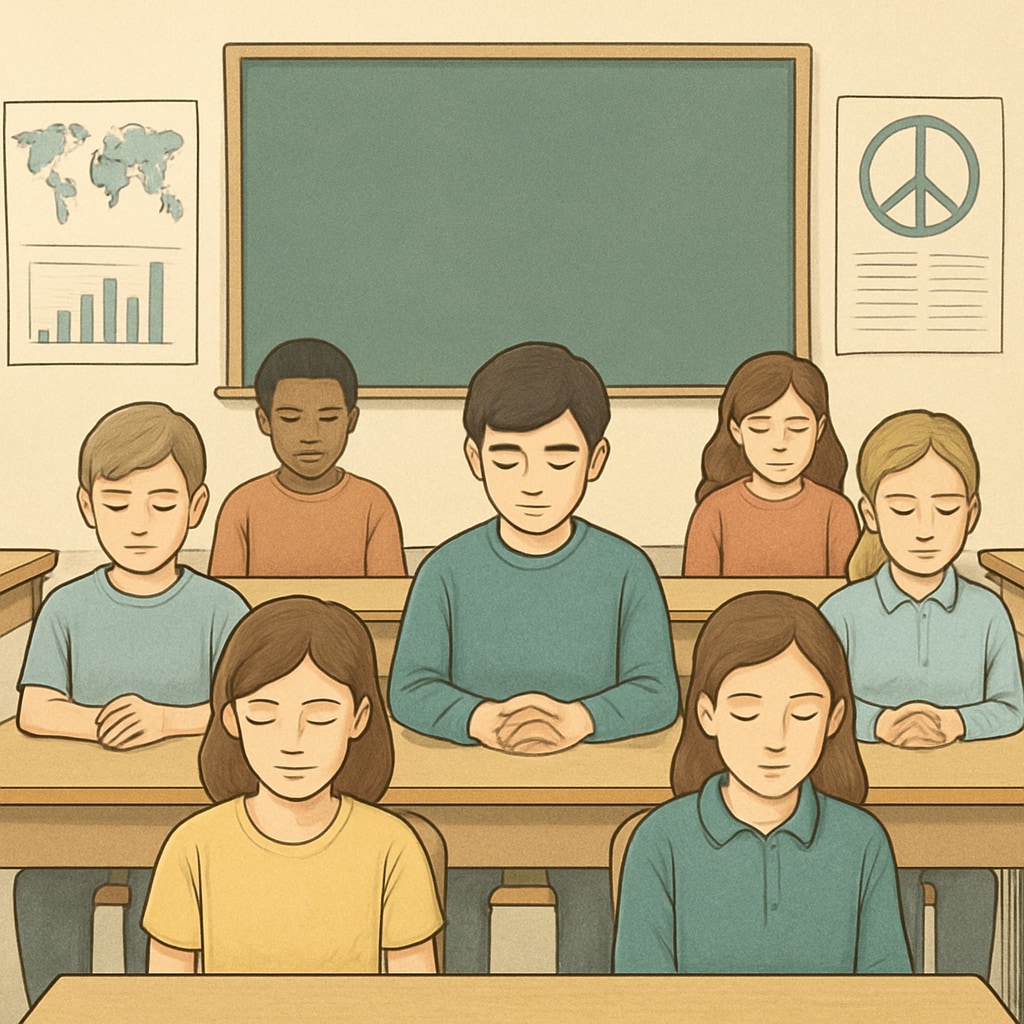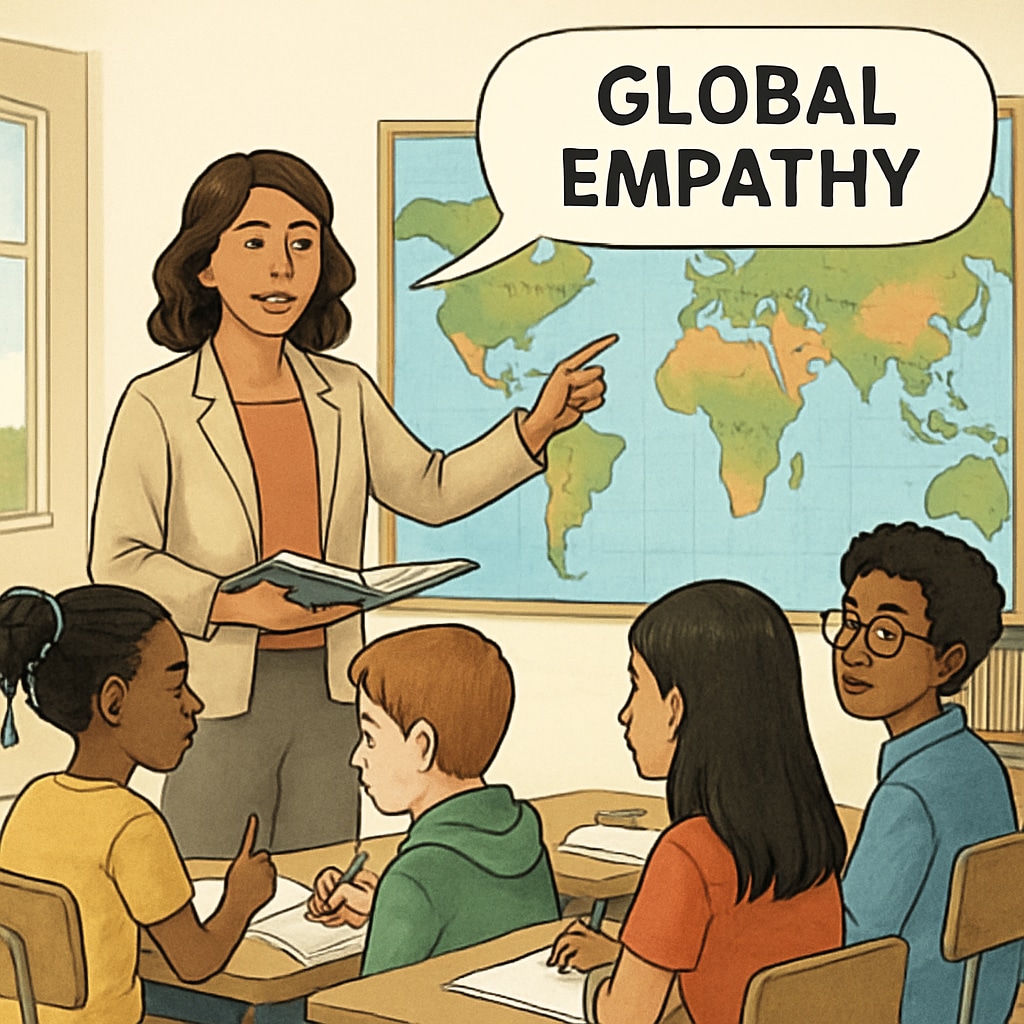The decision by some schools to replace “one minute of silence for Gaza” with “one minute of silence for all war victims” has sparked debate about the role of educational institutions in navigating sensitive political and ethical topics. While the intention may be to appear neutral, critics argue that such decisions may inadvertently reflect a lack of moral responsibility and diminish the significance of specific humanitarian crises. This article explores the implications of these choices for K12 education, focusing on the tension between political neutrality and value-based learning.

Neutrality or Avoidance? The Ethical Question in Education
Schools often face the challenge of addressing politically charged issues while maintaining a safe and inclusive environment. In the case of Gaza mourning, the shift to a broader focus on “all war victims” may seem balanced, but does it dilute the immediacy of the humanitarian crisis unfolding in Gaza? This approach raises ethical questions about whether educational institutions should actively acknowledge specific events or opt for generalized statements that avoid controversy.
- Political Neutrality: Schools often strive to avoid taking sides in geopolitical debates to protect students from divisive discussions.
- Value-Based Education: Critics argue that ignoring specific crises undermines the opportunity to teach empathy and global awareness.
- Community Sensitivity: Balancing the diverse backgrounds of students and their families can complicate such decisions.
For example, in situations like the Gaza crisis, the absence of explicit acknowledgment may be perceived as indifference, potentially alienating students who feel directly connected to the issue. On the other hand, emphasizing one conflict over others could also lead to claims of bias. This dilemma highlights the complexity of ethical decision-making in education.

The Role of Schools in Shaping Global Awareness
Educational institutions are uniquely positioned to foster critical thinking and global awareness in their students. By addressing sensitive topics like the Gaza crisis, schools have the opportunity to instill values of empathy, social justice, and the importance of humanitarian aid. However, this requires a delicate balance between neutrality and advocacy.
Several strategies can help schools navigate these challenges:
- Contextualized Learning: Integrating current events into lessons can provide nuanced perspectives without promoting bias.
- Open Discussions: Facilitating respectful dialogues allows students to explore diverse viewpoints and develop independent opinions.
- Collaborative Activities: Encouraging participation in humanitarian initiatives fosters a sense of shared responsibility.
As a result, schools can move beyond mere gestures like “moments of silence” to actively engage students in meaningful learning experiences that connect them to global issues. For instance, projects on humanitarian aid or conflict resolution can be used to teach both empathy and practical problem-solving skills.
Balancing Ethical Responsibility with Practical Limitations
While the intention behind broadening the scope of mourning activities to include “all war victims” is understandable, it risks glossing over the severity of specific crises. Practical limitations, such as diverse student demographics and varying parental opinions, often compel schools to take generalized approaches. However, ethical responsibility demands that institutions confront these challenges head-on.
For example, schools could consider:
- Transparent Communication: Clearly explaining the rationale behind decisions to avoid misunderstandings or backlash.
- Inclusive Practices: Recognizing multiple crises while emphasizing the importance of empathy for all victims of conflict.
- Professional Development: Providing teachers with resources to handle sensitive discussions effectively.
Ultimately, the debate over Gaza mourning reflects broader questions about the role of education in addressing global conflicts. Can schools remain neutral while still fulfilling their ethical obligation to prepare students for the challenges of an interconnected world? This question remains central to the ongoing discourse surrounding educational ethics.
Conclusion: The decision to replace specific mourning activities with generalized ones may appear to resolve immediate concerns, but it poses deeper ethical questions about the role of schools in shaping values and awareness. By embracing thoughtful strategies that balance inclusivity with moral responsibility, educational institutions can better navigate these complex issues and empower students to become conscientious global citizens.


